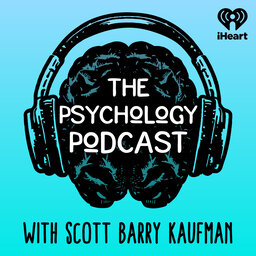The Psychology of Outrage w/ Dr. Kurt Gray
This week Scott is joined by author and professor of psychology at the University of North Carolina, Dr. Kurt Gray. Scott and Dr. Gray discuss why Americans seem so divided at this point in time, the psychology of self-righteous indignation, how we all share harm-based moral minds, and what we can do to find common ground.
In 1 playlist(s)
The Psychology Podcast
In each episode, we talk with inspiring scientists, thinkers, and other self-actualized individuals …Social links
Follow podcast
Recent clips

End of an Era — Reflections on 11 Years of The Psychology Podcast w/ Annie Murphy Paul
46:52

How Mindsets Shape Reality w/ Dr. Alia Crum
1:00:24

The Gentle Power of Sisu w/ Dr. Elisabet Lahti
48:45
 The Psychology Podcast
The Psychology Podcast